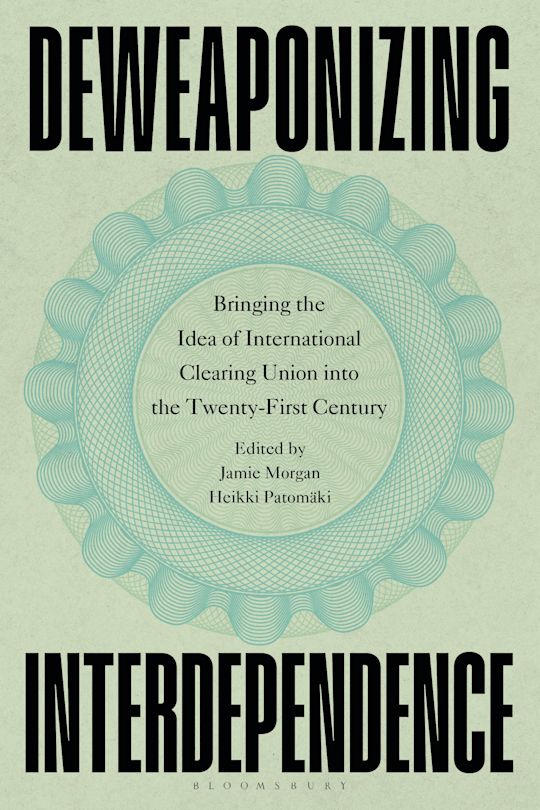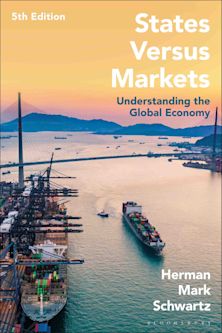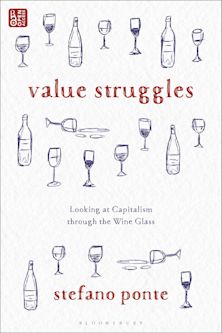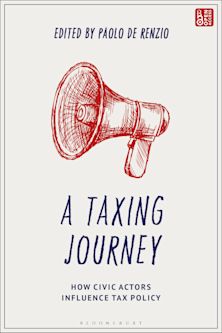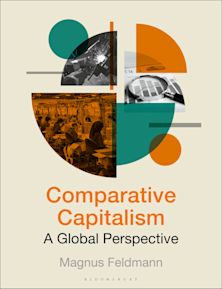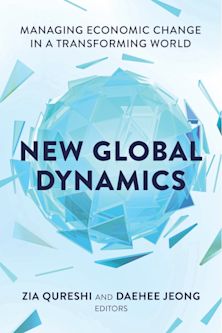Deweaponizing Interdependence
Bringing the Idea of International Clearing Union into the Twenty-First Century
- Open Access
Deweaponizing Interdependence
Bringing the Idea of International Clearing Union into the Twenty-First Century
- Open Access
Payment for this pre-order will be taken when the item becomes available
This product is usually dispatched within 10-14 days following the publication date
- Delivery and returns info
-
Free UK delivery on orders £30 or over
Description
Offering an excellent overview of critical approaches to international payment systems, this open access volume re-introduces the contemporary relevance, origins and aims of the International Clearing Union (ICU), a concept associated with J. M. Keynes and with debates of continued contemporary importance to global political economy.
This volume focuses on how ICU proposals interact with economic theory and normative principles of ethics and politics. It examines key contemporary political issues including de-dollarisation, development, overcoming nationalism, principles of fairness in trade and finance, commodity pricing, fixed vs. floating exchange rates, capital controls, the need for planning, and global public investments, as well as urgent issues of climate emergency and ecological breakdown. As such, this important volume provides a wide range of perspectives from both the Global North and Global South, as well as from different disciplines including politics, economics and political theory.
'The ebook editions of this book are available open access under a CC BY-NC-ND 4.0 licence on bloomsburycollections.com. Open access was funded by The University of Helsinki.
Table of Contents
List of Contributors
Preface
Chapter 1: Introduction: The idea of an ICU and its relevance in the twenty-first century by Jamie Morgan and Heikki Patomäki
Chapter 2: Keynes versus the globalists: From the gold standard to currency clearing to stabilization funds to digital currency clearing by Jan Kregel
Chapter 3: Regional clearing systems: From the European payments union to current initiatives confronting dollar dominance by Massimo Amato, Luca Fantacci and Lucio Gobbi
Chapter 4: Towards a new global financial architecture: The role of multipolarity, expanded BRICS and the Global South by Haider A. Khan
Chapter 5: Resolving the balance of payments problematic: Feasible reforms for the twenty-first century by Niina Kari and Lauri Holappa
Chapter 6: International monetary adjustment with and without a global fiscal authority by Nathaniel Cline, David Fields and Matías Vernengo
Chapter 7: An analysis of conflicts and the world monetary system: A case against unilateral responses and for a twenty-first-century global clearing union by Heikki Patomäki
Chapter 8: Beyond monetary hegemony: Normative underpinnings of a global clearing union by Konsta Kotilainen
Chapter 9: Designing the rules and principles of the International Clearing Union: Past and present debated issues by Adrien Faudot
Chapter 10: The ecor as global special purpose money: Towards a green international monetary system to finance sustainable and just transformation by Nicolás Aguila, Paula Haufe and Joscha Wullweber
Index
Product details

| Published | 19 Feb 2026 |
|---|---|
| Format | Hardback |
| Edition | 1st |
| Extent | 304 |
| ISBN | 9781350574809 |
| Imprint | Bloomsbury Academic |
| Dimensions | 234 x 156 mm |
| Publisher | Bloomsbury Publishing |
Reviews

OPEN ACCESS
Bloomsbury Open Access
Read and download this book free of charge from Bloomsbury Collections.









